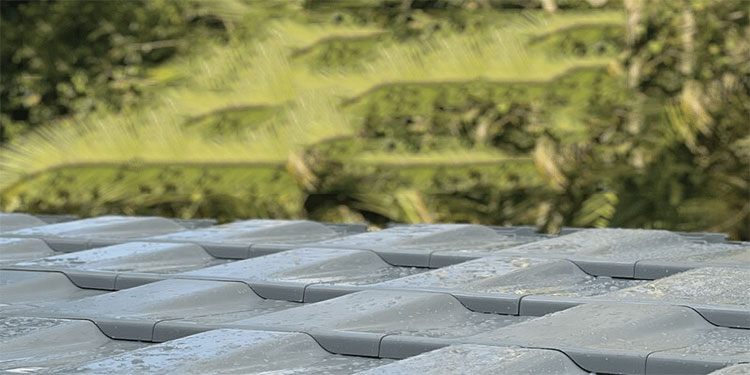
EAST AFRICA: Takazuri and the multinational chemical company BASF have partnered to offer cutting-edge, environmentally friendly building solutions in East Africa that support long-term durability and climatic resilience.
The goal of this partnership is to develop environmentally friendly building materials by combining locally produced post-consumer trash with BASF’s specially designed additive packages that are suited to the climate of the area.
The foundation of this collaboration is Takazuri’s Climatile technology, which uses recycled materials and is made to endure inclement weather while encouraging environmentally friendly building practices.
“Our business is centred around sustainability,” stated Takazuri CEO and co-founder Maria Schlesinger. Our goods are made from waste that is collected locally and, soon, with ocean plastics from Kenya’s coast, with an emphasis on high performance and multifunctionality.
The goal of Takazuri and BASF’s partnership is to supply reasonably priced, climate-resilient building materials to fulfil Africa’s expanding need for residential, commercial, healthcare, and educational areas.
According to African Development Bank projections, the population of the continent is expected to quadruple by 2050, leading to an increase in urbanisation and plastic garbage.
Takazuri aims to tackle these issues and promote sustainable development in Africa by utilising indigenous resources and creative collaborations.
Takazuri’s main product, Climatile, provides roofing and cladding solutions with improved solar reflectance, emittance, and insulation to raise indoor temperatures.
Additionally resistant to corrosion, the material can be used for rainwater gathering. Climatile stands out for its upgradeable system design, which combines biophilic components with frameless solar panels in a seamless manner to provide a flexible option for building climate-resilient structures.
When it comes to process optimisation, thermal stabilisation, and prolonging the service life of post-consumer recycles, BASF has been a tremendous partner. Schlesinger continued, “Their knowledge has been invaluable in creating additive packages appropriate for the severe weather in East Africa.
Takazuri has worked with Gabriel Chemie, a top European masterbatch producer, in addition to BASF.
During the production process of Climatile, Gabriel Chemie offers customised Combi-Batch solutions that contain stabilisers and colours to enhance the uniformity and dispersion of polymer components.
In order to stabilise the recycled polymers used in Climatile and ensure that they can resist thermal and photo-oxidation over extended periods of outdoor exposure, BASF’s additives are crucial.
The durability of post-consumer plastics, which are essential to Takazuri’s concept of sustainable construction, is improved by these stabilisers.
We worked closely with the Takazuri team to understand the technical requirements and market needs of Climatile,” said Bettina Sobotka, head of global marketing and development for BASF’s Plastic Additives division, in praise of the partnership.
We were able to overcome the difficulties associated with employing recycled materials for outdoor applications by creating the best additive technique possible. We anticipate that this partnership will promote economic growth in East African communities and the building industry.
By combining Takazuri’s creative thinking with the technological know-how of BASF, the company is redefining environmentally friendly building practices in Africa and opening the door to a more robust and sustainable future for the continent.
